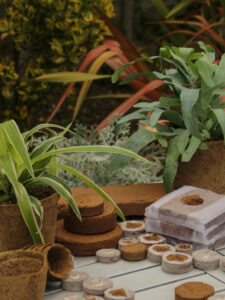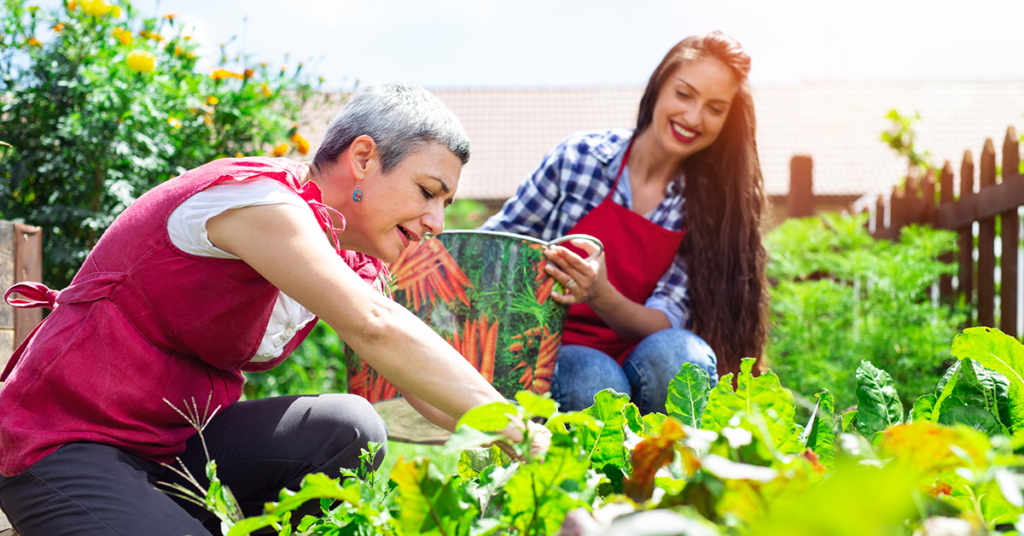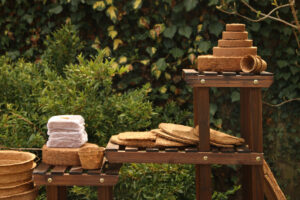Do you know that plants can help each other, which in turn, can help maintain the health of your garden? Have you ever tried companion planting? Read on to find out all about it.
What is companion planting?
Companion planting helps maintain the natural balance in your gardens and maximise the growth of plants and crops. It is a form of polyculture, and involves planting mutually beneficial plants in close proximity to each other so they provide each other with some form of support and protection.
Yet, while this technique has been used for centuries, it has been more or less a tried and tested method. Therefore, understanding which plants can help each other and how, is important, as planting the wrong mix of plants together can have negative effects on plant growth.
What are the benefits of companion planting?
Companion planting can help each other thrive by giving shelter and root space, helping to improve soil fertility, and creating better biodiversity. For instance, tall sun-loving plants can be planted next to those low shade-loving plants, to provide shade.
One of the most important benefits of companion planting is for deterring pests and diseases, as well as animal invaders. For example, plants often referred to as ‘trap plants’, can attract pests towards them and away from other neighbouring crops. Strong scented plants like garlic, mint, lavender, and marigold can deter pests. There are also plants that attract pollinators like bees, which helps improve the yield of a vegetable plot and is particularly useful for maintaining a well-balanced ecosystem.
What plants work well with each other?
There are plenty of plant combinations that work well side-by-side, here are a few of our favourites.
Broccoli works well with plants like spinach, swiss chard, and radishes, while plants like rosemary, sage, dill, and mint can help respect insects that eat the vegetable as it grows. The high calcium in broccoli makes it a good companion to beetroot. Avoid planting tomatoes, aubergines, and potatoes near broccoli, as they are heavy feeders.
Tomatoes work well with basil, mint, beans, lettuce, garlic, French marigolds, chives, and asparagus. Carrots planted near tomatoes can help loosen the soil but avoid planting them too close to each other, as carrots may not grow as large as they should. But avoid planting vegetables like potatoes, peppers, corn, dill, and aubergine, among others, in close proximity to tomatoes.
Carrots work well with beans, peas, leeks, lettuce, tomatoes, and rosemary. Strong smelling leaves such as leeks, onions, or herbs like parsley and mint, can help deter carrot flies. Beans and peas provide nitrogen-rich soil that benefits carrots. But if you decide on this combination, try not to grow onions closeby as that will hinder the growth of peas and beans. Avoid potatoes, dill, parsnips, and celery.
Cucumbers require a lot of space. The nasturtium flowering plant is an ideal companion as that doesn’t take up much room. Nasturtiums also can repel cucumber beetles. Root vegetables like carrots, radishes, and turnips, also work well as companion plants for cucumbers. Avoid plants like potatoes, sage, mints, and melons. Avoid planting aromatic herbs like basil and sage next to cucumbers as well as potatoes and melons.
Potatoes work well with horseradish, basil, corn, beans, peas, and sage, among others. Beans, for instance, release nitrogen into the soil, which is beneficial for potatoes, while in return, potato plants help deter some insect pests of beans. Lettuce and spinach can be planted between rows of potatoes to make the most of garden space as they do not also compete for the same nutrients. Avoid plants like squash, asparagus, fennel, raspberries, and strawberries.
Companion planting with CoirProducts for healthy gardening
At CoirProducts, we offer a range of coir-based growing media. Made out of the natural fibrous material extracted from the husk of the coconut, our coir products are natural, biodegradable, and peat-free, and ideal for growing a variety of plants and crops. Some of our products include multipurpose CoirProducts coir potting mix, CoirProducts coir pots where there is no transplanting shock when replanting, and CoirProducts coircoins that are ideal for sowing.
Have you tried out companion planting? What combinations worked for you?




